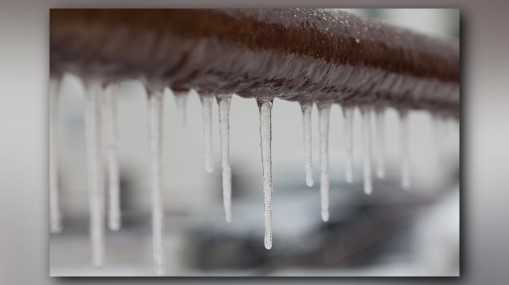Avoiding Frozen Plumbing in Winter: Professional Strategies
Avoiding Frozen Plumbing in Winter: Professional Strategies
Blog Article
We have found this great article about How To Avoid Freezing Pipes directly below on the net and accepted it made good sense to share it with you over here.

Cold weather can wreak havoc on your plumbing, specifically by freezing pipelines. Right here's exactly how to stop it from occurring and what to do if it does.
Introduction
As temperatures decrease, the risk of frozen pipes boosts, potentially causing expensive repair work and water damages. Comprehending how to stop frozen pipelines is crucial for property owners in cool climates.
Comprehending Icy Pipes
What creates pipelines to freeze?
Pipes ice up when subjected to temperatures below 32 ° F (0 ° C) for expanded durations. As water inside the pipes ices up, it broadens, putting pressure on the pipeline wall surfaces and potentially creating them to burst.
Threats and damages
Icy pipes can lead to supply of water disruptions, home damages, and costly repair work. Ruptured pipes can flooding homes and create considerable architectural damages.
Indicators of Frozen Pipeline
Recognizing frozen pipelines early can stop them from breaking.
Just how to identify icy pipelines
Search for lowered water flow from faucets, uncommon odors or sounds from pipelines, and noticeable frost on subjected pipelines.
Avoidance Tips
Shielding susceptible pipes
Cover pipes in insulation sleeves or utilize heat tape to protect them from freezing temperatures. Concentrate on pipelines in unheated or outside areas of the home.
Home heating methods
Keep indoor areas effectively heated up, especially locations with plumbing. Open up cabinet doors to permit warm air to flow around pipes under sinks.
Securing Outdoor Pipes
Yard hose pipes and exterior faucets
Detach and drain garden tubes before winter months. Install frost-proof spigots or cover exterior taps with insulated caps.
What to Do If Your Pipes Freeze
Immediate actions to take
If you presume icy pipelines, keep faucets open to eliminate stress as the ice thaws. Make use of a hairdryer or towels taken in warm water to thaw pipelines gradually.
Long-Term Solutions
Architectural adjustments
Take into consideration rerouting pipes far from exterior walls or unheated areas. Include added insulation to attics, cellars, and crawl spaces.
Upgrading insulation
Invest in high-grade insulation for pipes, attics, and walls. Correct insulation assists keep constant temperatures and decreases the threat of icy pipelines.
Final thought
Preventing icy pipes requires aggressive steps and quick feedbacks. By comprehending the reasons, signs, and safety nets, home owners can safeguard their pipes throughout cold weather.
6 Proven Ways to Prevent Frozen Pipes and Protect Your Home
Disconnect and Drain Garden Hoses
Before winter arrives, start by disconnecting your garden hoses and draining any remaining water. Close the shut-off valves that supply outdoor hose bibs and leave the outdoor faucet open to allow any residual water to drain. For extra protection, consider using faucet covers throughout the colder months. It’s also important to drain water from any sprinkler supply lines following the manufacturer’s directions.
Insulate Exposed Pipes
Insulating your pipes is an effective way to prevent freezing. Pipe insulation is readily available at home improvement stores and is relatively inexpensive. Pay close attention to pipes in unheated areas such as the attic, basement, crawl spaces, or garage. Apply foam insulation generously to create a buffer against the cold. You can also wrap your pipes in heat tape or thermostat-controlled heat cables for added warmth.
Seal Air Leaks
Inspect your home for any cracks or openings that could let in cold air. Seal any holes around the piping in interior or exterior walls, as well as the sill plates where your home rests on its foundation. Additionally, make sure to keep your garage door closed unless you’re entering or exiting. Leaving it open creates a significant air leak that can lead to frozen pipes.
Allow Warm Air Circulation
During cold snaps, it’s essential to allow warm air to circulate evenly throughout your home. Leave interior doors ajar to promote better airflow. Open kitchen and bathroom cabinets to help distribute heat consistently around the rooms. If you have small children or pets, be sure to remove any household chemicals or potentially harmful cleaners from open cabinets for safety.
Let Faucets Drip
A small trickle of water can make a big difference in preventing ice formation inside your pipes. When temperatures drop significantly, start a drip of water from all faucets served by exposed pipes. This continuous flow helps prevent the water from freezing. Additionally, running a few faucets slightly can relieve pressure inside the pipes, reducing the chances of a rupture if the water inside does freeze.
https://choateshvac.com/6-proven-ways-to-prevent-frozen-pipes-and-protect-your-home/

I'm very intrigued by Winter Plumbing Precautions: Preventing Frozen Pipes and I am hoping you liked the entry. Liked our post? Please share it. Let someone else find it. Bless you for being here. Don't hesitate to check our blog back soon.
Call Today Report this page